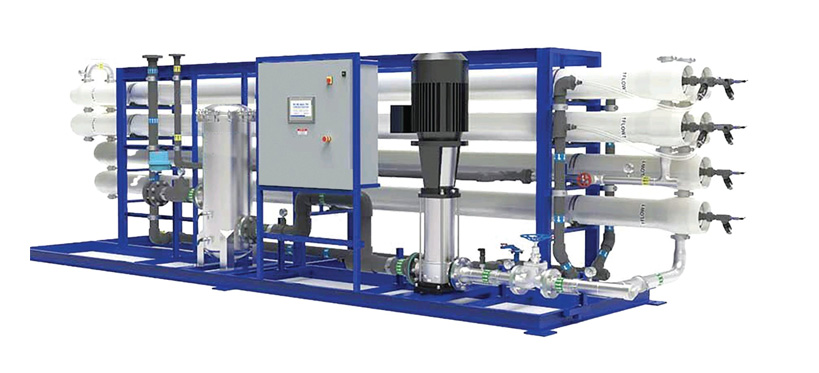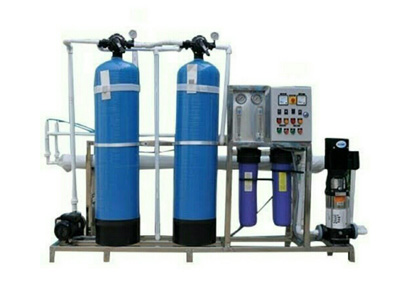
Industrial Reverse Osmosis (RO Plant)
Industrial Reverse Osmosis (RO) plants are advanced water treatment systems designed to remove impurities and contaminants from water using semi-permeable membranes. Water is forced through these membranes under pressure, separating dissolved solids, ions, and organic compounds from the water stream.
Industrial RO plants are widely used in various industries such as pharmaceuticals, food and beverage, and power generation to produce high-quality water for boiler feedwater, ingredient mixing, and equipment cleaning. They offer efficient removal of contaminants, high water recovery rates, and customizable designs to meet specific industrial water purification needs.
Why chose us?
Choose Agile Venture for Industrial Reverse Osmosis (RO) plant manufacturing and services for their expertise, innovative solutions, cost-effectiveness, and commitment to delivering high-quality water purification solutions tailored to industrial requirements.
- Innovative Solutions
- Tailored Solutions
- Reliable Technology
- Efficient Treatment

Innovative Solution
Innovative solution transforms wastewater treatment, enhancing efficiency and sustainability.
100% Quality
Guaranteed excellence, ensuring complete satisfaction with every project undertaken.
24/7 Support
Dedicated support ensures seamless operations, maximizing client satisfaction and success.
Industrial RO Plant
Systems designed to remove contaminants from water using semi-permeable membranes.
Working Process of Industrial RO Plant
The Industrial Reverse Osmosis (RO) plant process involves forcing water through semi-permeable membranes under high pressure, separating dissolved solids, ions, and contaminants from the water.
The membranes allow water molecules to pass through while blocking the passage of larger molecules and ions. This results in purified water on one side of the membrane and concentrated brine on the other.
The purified water is collected, while the brine containing rejected contaminants is typically disposed of or treated further. Industrial RO plants offer efficient water purification for various industrial applications, ensuring high-quality process water.
How we help in Industrial RO Plant requirement
By understanding client needs, we provide comprehensive services for Industrial Reverse Osmosis (RO) plant projects. Initially, we assess water quality, production demands, and regulatory standards.
Based on this evaluation, we recommend suitable RO technologies, considering factors like membrane type, system configuration, and capacity requirements. We prioritize client collaboration throughout the process, offering tailored solutions and expert guidance.
Our commitment ensures that the selected RO plant design aligns perfectly with client objectives, delivering efficient and sustainable water purification solutions that meet regulatory and operational demands.
Different types of Industrial Reverse Osmosis (RO) plant technologies include:
- 1. Spiral Wound RO Membranes: Utilize a spiral-wound configuration of semi-permeable membranes for efficient water purification.
- 2. Hollow Fiber RO Membranes: Hollow Fiber RO Membranes consist of hollow fibers for increased surface area and enhanced water treatment efficiency.
- 3. Tubular RO Membranes: Feature tubular-shaped membranes suitable for high-pressure applications and industrial-scale water treatment.
- 4. Thin Film Composite (TFC) RO Membranes: Incorporate a thin film composite layer for improved rejection of contaminants and longer membrane lifespan.
- 5. Cellulose Triacetate (CTA) RO Membranes: Utilize cellulose-based materials for specialized applications, such as treating brackish water or wastewater.
- 6. Nanofiltration (NF) RO Membranes: Employ membranes with larger pores than traditional RO membranes, suitable for partial removal of divalent ions and organic matter.
- 7. Low-Pressure RO Systems: Designed for applications with lower operating pressures, offering energy savings and cost-effective water purification solutions.
- 8. High-Recovery RO Systems: Optimize water recovery rates, minimizing waste and maximizing water utilization efficiency in industrial processes.
These technologies offer various advantages and may suit different water qualities and treatment requirements in industrial RO applications.
Frequently Asked Questions (FAQ)
What is the capacity range of Industrial Reverse Osmosis (RO) plants you offer?
The capacity range of our Industrial Reverse Osmosis (RO) plants varies to suit diverse industrial needs. We offer systems ranging from small-scale units suitable for laboratory or pilot-scale applications to large-scale plants capable of treating thousands of cubic meters of water per day, efficiently catering to industrial requirements.
How does the RO plant process work, and what are its key components?
The RO plant process involves forcing water through semi-permeable membranes under high pressure, separating dissolved solids and contaminants from the water. Key components include membranes, pressure vessels, pumps, pre-treatment systems (like filters and softeners), and post-treatment systems (like disinfection units), ensuring efficient water purification for various industrial applications.
Can the RO plant be customized to treat specific types of water?
Yes, RO plants can be customized to treat specific types of water based on their characteristics and contaminants. By selecting appropriate membrane types, adjusting pre-treatment processes, and incorporating specialized components, RO plants can effectively treat different water sources to meet specific quality requirements for various industrial applications.
What are the maintenance requirements for the RO plant?
Maintenance requirements for an RO plant include regular inspections, membrane cleaning or replacement, monitoring of system performance parameters, periodic chemical cleaning of membranes, and servicing of pumps and valves. Additionally, preventive maintenance tasks such as replacing worn-out components are essential to ensure optimal operation and longevity of the system.
What is the expected lifespan of the RO plant equipment?
The expected lifespan of RO plant equipment typically ranges from 10 to 15 years, contingent upon factors such as maintenance practices, material quality, and operating conditions. Diligent upkeep, timely membrane replacement, and component servicing can significantly extend the equipment's operational lifespan, ensuring efficient and reliable performance over time.
How long does it take to install and commission an RO plant?
The duration of installing and commissioning an RO plant varies based on factors such as plant size, complexity, site readiness, and regulatory approvals. Typically, installation can take several weeks to months, followed by commissioning, which may require additional testing and fine-tuning before full operation.
Are there any regulatory approvals required to install and operate the RO plant?
Yes, regulatory approvals for installing and operating an RO plant may be required, depending on local laws and environmental regulations. Permits may be necessary for construction, discharge of treated water, hazardous materials handling, and compliance with water quality standards, ensuring environmental protection and regulatory compliance.
What are the operational costs associated with running the RO plant?
The operational costs associated with running an RO plant include electricity to power pumps and equipment, pre-treatment and membrane cleaning chemicals, labor for operation and maintenance, disposal of concentrate waste, and periodic servicing and repairs to ensure efficient and reliable operation.
Is training provided for our staff on operating and maintaining the RO plant?
Yes, the staff is trained in operating and maintaining the RO plant. This training covers aspects such as plant operation, equipment handling, safety protocols, troubleshooting procedures, and regulatory compliance. Properly trained staff ensures the smooth and efficient operation of the RO plant, maximizing its effectiveness in producing purified water.
What kind of after-sales support and services do you provide for the RO plant?
We provide comprehensive after-sales support and services for RO plants, including ongoing maintenance contracts, technical assistance for troubleshooting and optimization, spare parts supply, regular inspections, and upgrades to meet changing needs. Our commitment ensures the long-term efficiency and reliability of the RO plant, maximizing customer satisfaction and performance.
Get in Touch
Connect with us today for tailored solutions, exceptional service, and transformative results for your wastewater needs.
Call us on
+91-8882354793
Email us
contact@agileventures.in
